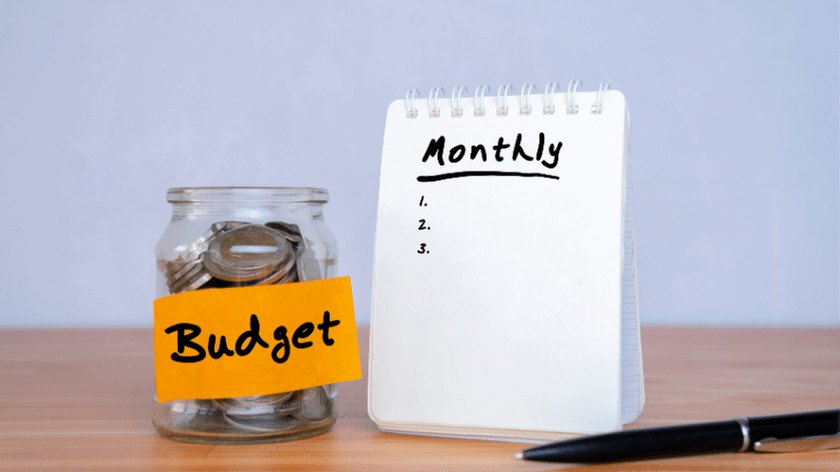How To Stick To A Budget
August 12, 2023
There is more than enough information out there to convince you of the importance of budgeting. Most people have already figured that out. Where many of us still struggle is the “How?”. Whether you use an app, a spreadsheet, or a paper template is unimportant, but what is important is how you think about your budget. Your budget is simply your plan for your money. When you think about your budget in these terms, it should be freeing and exciting. You get to decide what you do with your money, and a budget is simply writing it down. Despite the fact that we decide where to allocate our money, many of us still struggle to stick to the plan that we make.
Have realistic and well-defined goals.
The first step in making a budget is defining your goals. It is the first step and usually the place that causes many of our budgets to fail, and we don’t even realize it. Our goals need to be realistic based on the money we have. We only make a certain amount of money each month, and if our goals for the month exceed that amount, then we will surely not be able to stick to that budget. Our goals should also be specific. We should be budgeting real dollars, not forecasted money we plan to make later this month or next month. Want more tips on making budget goals? Make S.M.A.R.T. Budget Goals
Check budget categories before spending.
This is the difference between tracking your spending and budgeting. When you are budgeting, you check your budget categories often and before spending money to see how much money is left in those categories. If you are entering transactions into your budget long after they happened to see how you did in your budget, then you are tracking spending. When you are budgeting, you should always know where you stand in a category, or at least be able to check it quickly.
Give yourself freedom to move money between categories.
As we have already stated, a budget is simply your plan for your money. That means you are in control. That is why we say budgeting helps you take control of your finances. The key word here is “control”. Give yourself the freedom to move money between budget categories. Life happens, plans change, and our priorities shift, and that is ok. It is okay to adjust your budget as the month goes by. As long as we are making the conscious decision to do it instead of letting our unplanned spending do it for us.
When budgeting a new month, consider when bills are due and when the money will be needed.
When we are first starting to budget, we are most likely not going to be budgeting a month ahead. This means it is important to prioritize your budget categories. If we are not budgeting a month ahead, then we need to prioritize our money for the next most important expense. For example, if you have a fixed expense on the last day of the month, prioritize other necessary expenses first. You will still want to make sure all necessities are fully funded before funding non-essential categories.
The farther out you start to budget, the easier it becomes.
When you first start out, this may seem overwhelming, but the longer you stick with it, the easier it truly becomes. Setting aside a little money for Christmas, vacations, yearly subscriptions, and any long-term goal you have takes the pressure off budgeting each month, as you will not be scrambling to pull out an entire vacation trip out of your next two paychecks.
Budget all the money in your spending accounts not future money.
This is truly a different approach to budgeting than most budgeting apps have you do. This is why Ploutos Budget is different. This is where the switch was flipped in my own budget. I have tried so many apps and could never stick to a budget I made. I was always short of money at the end of the month, let alone get a month ahead. Take all of your spending accounts, i.e., your checking, savings, and credit cards, and add them up. Then you simply allocate those dollars and only those dollars to your next-needed upcoming expenses. Once you get paid or receive any new money into your accounts, you simply repeat the process, take the new money, and allocate it towards your next upcoming expenses. This process truly gives all of your dollars a job.
If you have been struggling with budgeting, then I hope trying out some of these strategies will help. Budgeting is not an easy skill to master, but it is worth it.
Looking for more budgeting tips? Check out:
Make better financial decisions
👉 Try our budgeting tool for 1 month!

